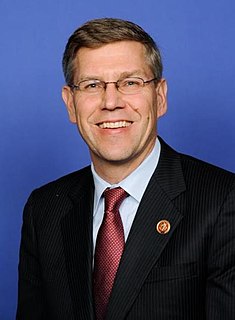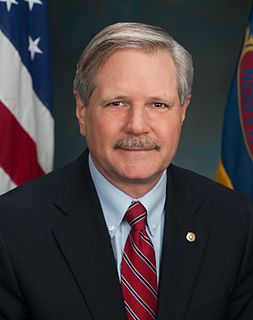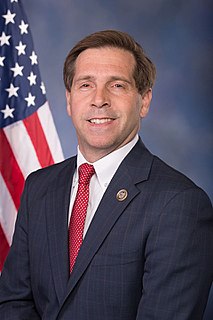A Quote by Erik Paulsen
The medical device tax repeal is the only proposal that had the most bipartisan votes coming out of the House and has the opportunity in the Senate to gain tractions, and it fixes a part of ObamaCare in terms of repealing an awful tax. And it's got bipartisan support.
Related Quotes
Sometime in the near future we'll have a vote on repealing Obamacare, essentially the same vote that we had in 2015. I would remind everyone that in that proposal there's a two-year delay, a two-year delay which would give us the opportunity to work out a complete replacement on a bipartisan basis with our Democratic friends.
Winning control of the Senate would allow Republicans to pass a whole range of measures now being held up by Reid, often at the behest of the White House. Make it a major reform agenda. The centerpiece might be tax reform, both corporate and individual. It is needed, popular and doable. Then go for the low-hanging fruit enjoying wide bipartisan support, such as the Keystone XL pipeline and natural gas exports, most especially to Eastern Europe. One could then add border security, energy deregulation and health-care reform that repeals the more onerous Obamacare mandates.
We've got Donald Trump who doesn't want to go single payer, and this the Democrats and the establishment know. So there are two options here, and it's interesting to note that if you listen to the media and you listen to the Democrats, repealing Obamacare is the worst thing that could be done, but it isn't. Staying with Obamacare and letting it implode is the absolute worst outcome here. Repealing it means you repeal it. You get rid of every Obamacare law, and that means you start over.
The harsh reality is that we simply cannot tax our way out of our overspending and debt problem. We need a balanced approach that includes both a stronger economy to generate new tax revenues and bipartisan guardrails, which will help ensure that future presidents and congresses spend within our means.
We certainly could have voted on making the middle-class tax cuts and tax cuts for working families permanent had the Republicans not insisted that the only way they would support those tax breaks is if we also added $700 billion to the deficit to give tax breaks to the wealthiest 2 percent of Americans. That's what was really disturbing.
































